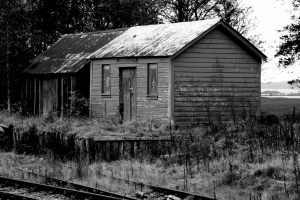A few months back I was blessed to be able to compile an article about survivors of the Great Depression. The article was an assignment for Vertical Thought magazine, which reaches out to a young adult and teen audience. My goal was to connect young people to the now elderly folks who lived through the Great Depression.
What was great about doing the article was that the subject fascinated me. Likewise, my interview material was everywhere! My relatives, older folks from the church congregation I attend, and from the community.
 I think what has always amazed me about that era was that although so many people were barely scraping along; you will often hear them say that they didn’t know they were poor.
I think what has always amazed me about that era was that although so many people were barely scraping along; you will often hear them say that they didn’t know they were poor.
There was still an unspoken rule that if you had food to eat, a roof over your head, and a family with love – you were all right. Notice I didn’t say indoor plumbing, electricity, air conditioning, a new car, digital communication devices, digital music devices, etc. There are some basic things that all humans truly need. Then there are “necessities” that we are conditioned to “need.”
Binary Burden
To be fair, I, like the next person, use my fair share of these devices and benefit as a result, but I also find myself over-processed from them. In the same way that junk food is over-processed to the point that it doesn’t resemble its original components; I think over-digitalization is similar.
We lose ourselves in the crush of information, our ability to concentrate is tampered with, and we begin to feel like we can’t live without all the social networking, constant texting, and electronic gadgets. We’re addicted to a pile of things or worse, to the miles of information encoded in the vapor that is the web!
Tough as it is to imagine, we could all probably get along without the proliferation of leisure and time saving devices that drive store and Internet sales these days.
Maybe I’m a young curmudgeon in the making, but there is something to be said for daily physical activity that leaves you fatigued, but invigorated by the activity and accomplishment.
Walk the talk
My challenge to you – go find one of these elders and ask them about (if possible) their life before electricity. Ask them to tell you what it was like when each new device came into popular use. Ask them how they got along without all those things.
You will be intrigued by the answers, and more than that, you will have made a connection to their past, which is now part of yours. You will be an historian!
